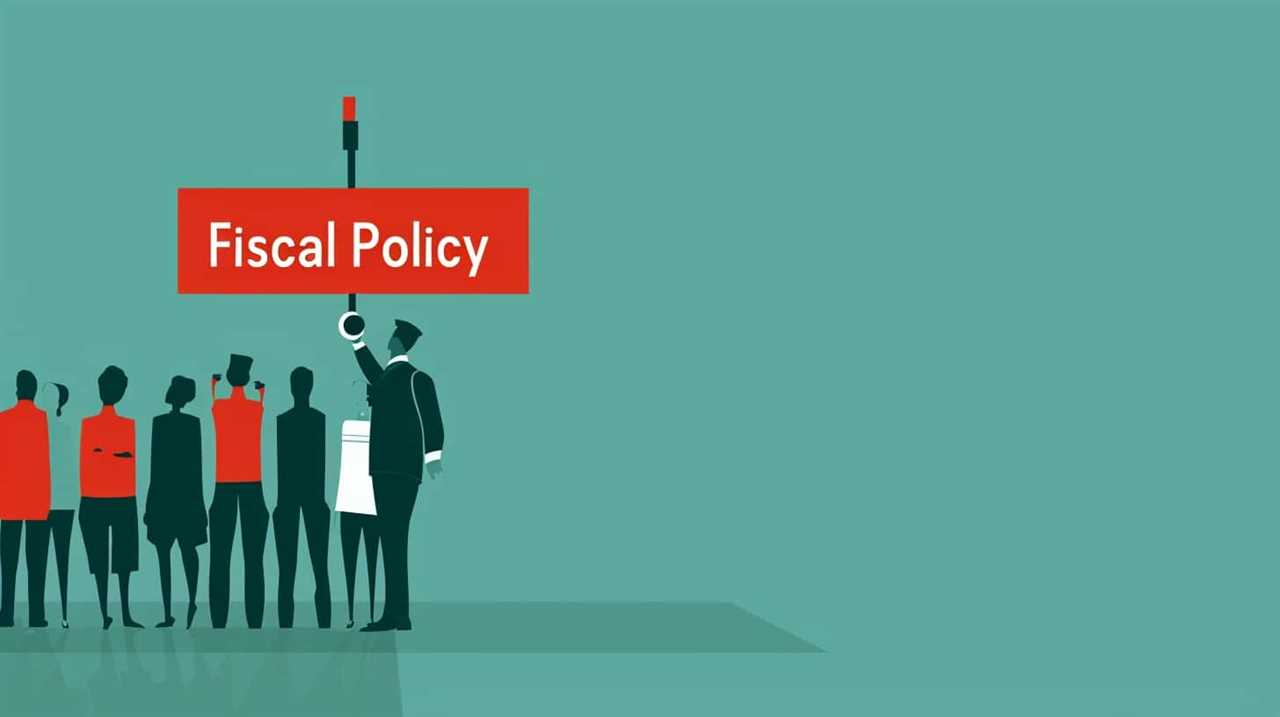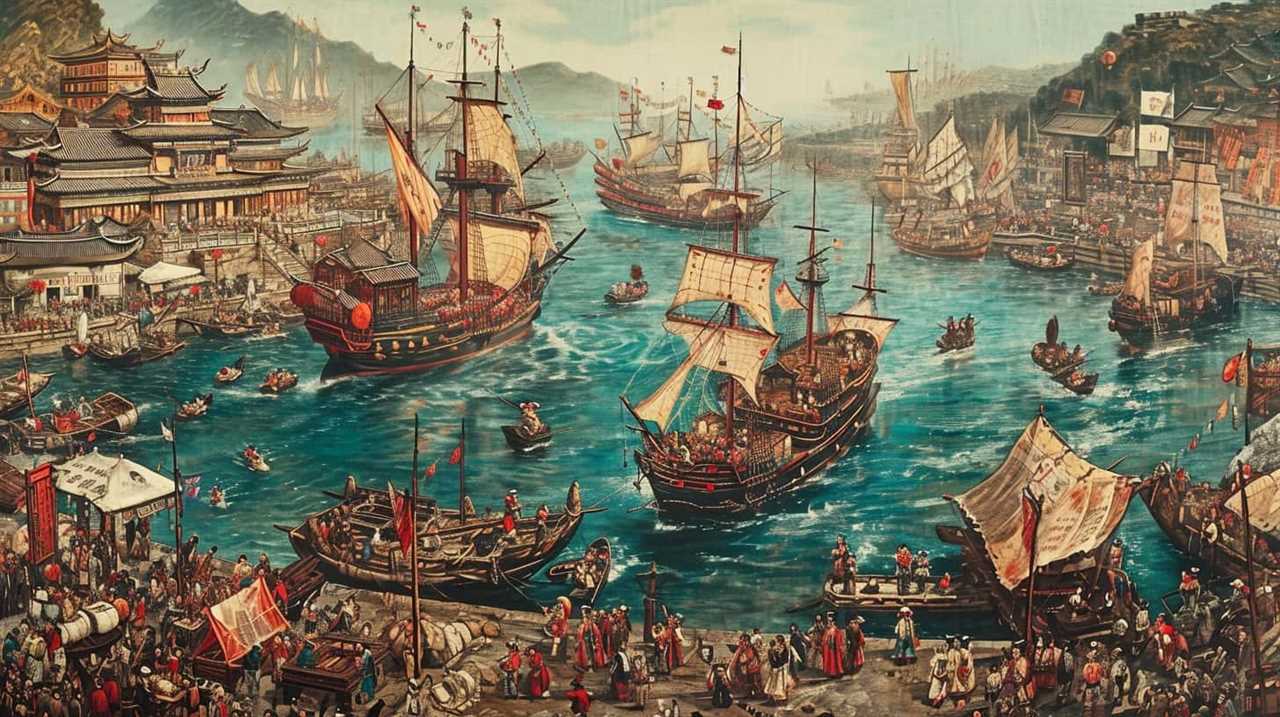Exploring the intricate relationship between Marxian economics and capitalism uncovers a profound and transformative collaboration. The influence of Marxian economics on capitalism is significant, signaling the emergence of new possibilities.
As we delve into this realm, we witness the powerful impact of class struggle, the redistribution of wealth and resources, and a thought-provoking critique of the very foundations of capitalism itself. Labor relations undergo a metamorphosis, and the concepts of alienation and commodification take center stage.
The role of the state in managing capitalism becomes a pivotal force, while the emergence of socialist movements signals a shift in societal dynamics. Join us as we embark on this journey to uncover the seven effects that Marxian economics has on the ever-evolving landscape of capitalism.
Key Takeaways
- Marxian economics highlights the inherent contradictions within capitalist societies, which perpetuate class struggle and inequality.
- It emphasizes the economic exploitation of the working class by the capitalist class, through mechanisms such as low wages, long working hours, and the extraction of surplus value from labor.
- Marxian economics calls for the recognition and upholding of labor rights, the empowerment of workers, and the demand for fair treatment.
- It also advocates for the transformation of labor relations by redefining the value of labor beyond market determination, promoting equitable treatment of workers, and addressing the issues of alienation and commodification within capitalism.
Class Struggle and Its Impact
In this article, we’ll explore the impact of class struggle on capitalism.

Class struggle refers to the conflict between the working class and the capitalist class, where the former seeks to improve their working conditions and increase their share of the economic pie, while the latter aims to maintain their dominance and maximize profits.
This struggle has been shaped by various factors, including the impact of globalization and the role of technology.
Globalization has had a profound effect on class struggle. With the expansion of international trade and the integration of economies, multinational corporations have gained significant power and influence. This has led to a widening gap between the rich and the poor, as corporations exploit cheap labor in developing countries while reaping enormous profits. Additionally, globalization has enabled the outsourcing of jobs, leaving many workers in developed countries vulnerable to unemployment and stagnant wages.
Technology has also played a crucial role in class struggle. Advancements in automation and artificial intelligence have led to job displacement, particularly in industries that can be easily automated. This has further widened the wealth gap, as those who possess the skills and education required in the digital age benefit while others struggle to adapt. Moreover, technology has enabled the surveillance and control of workers, eroding their bargaining power and increasing the power imbalance between labor and capital.

Redistribution of Wealth and Resources
The redistribution of wealth and resources is a central component of Marxian economics. By advocating for economic inequality reduction and resource allocation restructuring, Marx aimed to address the inherent disparities in capitalist societies.
This approach seeks to create a more equitable distribution of wealth and resources, challenging the concentration of power and wealth in the hands of a few. Through this lens, Marxian economics aims to promote social justice and alleviate the systemic issues perpetuated by capitalism.
Economic Inequality Reduction
Our analysis reveals that implementing Marxian economics leads to a significant reduction in economic inequality through the collective redistribution of wealth and resources. This redistribution is essential for promoting social mobility and creating a more equitable society. Here are four key ways in which Marxian economics achieves this:
- Progressive taxation: By implementing a system of progressive taxation, where the wealthy pay a higher percentage of their income in taxes, Marxian economics ensures that the burden of funding public services and social welfare programs falls more heavily on those with greater financial means.
- Welfare state: Marxian economics emphasizes the creation of a comprehensive welfare state that provides social safety nets, such as universal healthcare, unemployment benefits, and education subsidies. These programs help to alleviate poverty and provide equal opportunities for all members of society.
- Worker ownership: Marxian economics advocates for worker ownership of the means of production. By giving workers control over the profits generated by their labor, this system reduces income inequality and promotes economic justice.
- Land reform: Marxian economics recognizes the significance of land ownership in perpetuating economic inequality. Through land reform measures, such as redistributing land to those who cultivate it, Marxian economics aims to address historical injustices and ensure fair access to resources.
Resource Allocation Restructuring
We can achieve resource allocation restructuring and the redistribution of wealth and resources through the implementation of Marxian economics. By adopting Marxian principles, we can address the current inequities in resource distribution and create a more balanced system. Resource allocation restructuring entails a significant shift in the way resources are allocated within a capitalist society. This restructuring aims to reduce the concentration of wealth and power in the hands of a few, and instead promote a more equitable distribution that benefits the entire society. The table below illustrates the potential effects of resource allocation restructuring on various aspects of the economy:

| Restructuring Effects | Resource Allocation |
|---|---|
| Decreased inequality | Fair distribution |
| Increased social welfare | Efficient utilization |
| Enhanced economic stability | Balanced allocation |
| Improved productivity | Equitable access |
Through resource allocation restructuring, we can create a more inclusive and sustainable capitalist system that prioritizes the well-being of all individuals and promotes innovation.
The Critique of Capitalism
The critique of capitalism in Marxian economics centers around two key points: class struggle and inequality, and the exploitation of labor.
Marx argues that capitalism inherently creates a division between the bourgeoisie, who own the means of production, and the proletariat, who sell their labor for wages. This class struggle leads to an unequal distribution of wealth and resources, with the bourgeoisie benefiting at the expense of the proletariat.
Additionally, Marx asserts that capitalism exploits labor by extracting surplus value from workers through mechanisms such as low wages and long working hours.

These two points are central to Marx’s critique of capitalism and form the basis for his call for a revolutionary transformation of the economic system.
Class Struggle and Inequality
One of the key effects of Marxian economics on capitalism is the perpetuation of class struggle and inequality. By examining the inherent contradictions within capitalist societies, Marx argues that the capitalist system inevitably leads to the concentration of wealth and power in the hands of a few, while the majority of the population struggles to make ends meet. This critique of capitalism highlights the need for income redistribution and social mobility in order to address the disparities between the ruling class and the working class.
To further understand the impact of Marxian economics on capitalism, consider the following:
- Economic exploitation: Marx argues that capitalism inherently exploits the labor of the working class for the benefit of the capitalist class.
- Alienation: Capitalism alienates workers from the products of their labor, resulting in a lack of fulfillment and satisfaction in their work.
- Class consciousness: Marx emphasizes the importance of class consciousness, whereby the working class becomes aware of their collective interests and challenges the dominance of the ruling class.
- Revolution: Marxian economics posits that class struggle will ultimately lead to a revolution, overthrowing the capitalist system and establishing a more egalitarian society.
Exploitation of Labor
Examining the exploitation of labor is crucial in understanding the critique of capitalism according to Marxian economics. Marx argued that capitalism inherently exploits workers by extracting surplus value from their labor. This exploitation occurs through the unequal power dynamics between capitalists and workers, where capitalists control the means of production and set wages.

To fully comprehend the impact of labor exploitation, it is essential to consider the concepts of labor rights and fair wages. Labor rights encompass the legal and moral protections granted to workers, ensuring safe working conditions, fair treatment, and the right to organize. Fair wages, on the other hand, involve the payment of a just and sufficient amount to workers for their labor.
| Labor Rights | Fair Wages |
|---|---|
| Safe working conditions | Just payment for labor |
| Fair treatment | Sufficient wages |
| Right to organize | Equal compensation |
Transformation of Labor Relations
As we delve into the effects of Marxian Economics on Capitalism, let’s now explore the transformative nature of labor relations.
The transformation of labor relations refers to the changes that occur in how workers are treated and the rights they’ve within a capitalist system. Here are four key aspects of this transformation:
- Recognition of labor rights: Marxian Economics emphasizes the importance of recognizing and upholding the rights of workers. This includes fair wages, safe working conditions, and the right to organize and bargain collectively.
- Shift towards worker empowerment: The focus on labor rights has led to a shift in power dynamics between employers and workers. Workers are now more empowered to demand better treatment and fair compensation for their labor.
- Rise of labor unions: Labor unions have played a crucial role in transforming labor relations. They advocate for the rights and interests of workers, negotiate collective bargaining agreements, and ensure that workers have a voice in decision-making processes.
- Redefining the value of labor: Marxian Economics challenges the capitalist notion that the value of labor is solely determined by the market. It argues that the true value of labor lies in the effort and skill put into it, rather than the profit it generates for capitalists.
These transformations in labor relations have brought about significant changes in the capitalist system, promoting a more equitable and just treatment of workers. By recognizing labor rights, empowering workers, supporting labor unions, and redefining the value of labor, Marxian Economics has contributed to the ongoing evolution of labor relations within capitalism.

Alienation and Commodification
To further explore the effects of Marxian Economics on Capitalism, let’s delve into the issue of alienation and commodification within labor relations.
Alienation refers to the separation of workers from the products of their labor, the process of production, and even from their own human essence. Commodification, on the other hand, refers to the transformation of goods and services into commodities that are bought and sold in the market.
The effects of alienation and commodification on workers are profound. Alienation leads to a sense of powerlessness and disconnection from their work, as they become mere cogs in the capitalist machine. Workers are reduced to a means of production, rather than being valued as individuals with unique skills and talents. This not only affects their psychological well-being but also hampers their productivity and creativity.
Commodification further exacerbates this issue by reducing workers to commodities themselves. They’re bought and sold in the labor market based on their skills and labor power, rather than being recognized for their inherent dignity as human beings. This commodification of labor not only devalues the individual worker but also perpetuates inequality and exploitation within the capitalist system.

The implications of alienation and commodification extend beyond the realm of labor relations. They’ve significant implications for consumer culture as well. The capitalist system thrives on the constant consumption of goods and services. However, when workers are alienated from their labor and commodified, their ability to participate fully in consumer culture is compromised. They become mere consumers themselves, driven by the desire for material possessions rather than true fulfillment.
Role of the State in Managing Capitalism
The state plays a crucial role in managing capitalism by regulating and overseeing economic activities within a society. State intervention and market regulation are key mechanisms through which the state exercises its authority in managing capitalism. Here are four ways in which the state manages capitalism:
- Legislation and Regulation: The state establishes laws and regulations to ensure fair competition, protect consumers, and prevent monopolistic practices. It sets standards for product quality, safety, and environmental sustainability, while also enforcing antitrust laws to promote market competition.
- Fiscal and Monetary Policies: The state uses fiscal and monetary policies to manage the overall economic conditions and stability. It employs tools such as taxation, government spending, and interest rates to influence economic growth, inflation, and employment levels.
- Social Welfare Programs: The state implements social welfare programs to address inequality and provide a safety net for vulnerable members of society. These programs include healthcare, education, unemployment benefits, and retirement pensions, aiming to mitigate the negative effects of capitalism on marginalized individuals.
- Infrastructure Development: The state invests in infrastructure development to support economic activities and enhance productivity. It builds and maintains transportation networks, communication systems, and public utilities, creating an environment conducive to business operations and trade.
Through these interventions and regulations, the state seeks to manage capitalism in a way that balances economic efficiency, social equity, and sustainability. This active role of the state in managing capitalism reflects an ongoing effort to innovate and adapt to the changing needs and challenges of a dynamic market economy.
How Do Marx’s Class Struggle Theories Impact Capitalism According to Marxian Economics?
Marx’s class struggle theories provide insights into Marx’s theories about the inherent conflict between the bourgeoisie and the proletariat in a capitalist society. According to Marxian economics, this perpetual struggle ultimately leads to the downfall of capitalism and the emergence of a classless, communist society.
Emergence of Socialist Movements
With the rise of capitalist societies, socialist movements have emerged as a response to the perceived inequalities and exploitative nature of the capitalist system. These movements seek to address the power imbalances between the bourgeoisie, who control the means of production, and the proletariat, who rely on selling their labor to survive.

Socialist revolutions have been a significant outcome of these movements. In countries like Russia, China, and Cuba, socialist revolutions led to the establishment of socialist or communist governments. These revolutions aimed to overthrow the capitalist ruling class and create a society based on worker empowerment, collective ownership, and the equitable distribution of resources.
Worker empowerment is a central pillar of socialist movements. Socialists argue that capitalists exploit workers by extracting surplus value from their labor and paying them wages that don’t reflect the full value of their work. Through worker empowerment, socialists seek to give workers control over their workplaces and decision-making processes, ensuring fair compensation, safer working conditions, and a say in the distribution of profits.
Frequently Asked Questions
How Did Marxian Economics Influence the Rise of Labor Unions and Worker Rights Movements?
Marxian economics had a significant influence on labor unions, shaping their formation and goals. It also had a profound impact on worker rights movements, advocating for better working conditions, fair wages, and collective bargaining power.
What Role Does Technology Play in the Transformation of Labor Relations According to Marxian Economics?
Technology, specifically automation, plays a significant role in the transformation of labor relations according to Marxian economics. It leads to job displacement, wage stagnation, and increased exploitation of workers. Globalization further exacerbates these effects by creating a competitive market that prioritizes profit over labor rights.

How Does the Concept of Alienation in Marxian Economics Relate to the Modern Gig Economy and the Rise of Precarious Work?
In the gig economy and rise of precarious work, alienation, as defined by Marxian economics, is evident. Critics argue that this undermines worker rights and the power of labor unions, but proposed solutions include strengthening welfare state policies and social safety nets.
What Are Some of the Key Criticisms of Marxian Economics and Its Proposed Solutions for Capitalism?
Some of the key criticisms of Marxian economics include its inadequate incentive structure and its perceived lack of individual freedom. Critics argue that these factors hinder innovation and limit the potential for growth in a capitalist system.
How Did Marxian Economics Shape the Development of Welfare State Policies and Social Safety Nets in Capitalist Countries?
Marxian economics significantly influenced the development of welfare state policies and social safety nets in capitalist countries. Through its emphasis on wealth redistribution and addressing class struggle, it paved the way for greater social support and economic equality.
Conclusion
In conclusion, the effects of Marxian economics on capitalism have been profound. Through class struggle and the redistribution of wealth and resources, Marxian ideas have challenged the foundations of capitalism. The critique of capitalism has sparked debates and discussions, leading to transformative changes in labor relations and the emergence of socialist movements.

One interesting statistic to consider is that according to a study by the World Inequality Database, the top 1% of the global population now owns more wealth than the bottom 50%. This highlights the growing wealth inequality that Marxian economics seeks to address.
Lauren’s talent in writing is matched by her passion for storytelling. Her love for books and deep understanding of culture and entertainment add a distinct flavor to her work. As our media and press contact, Lauren skillfully bridges the gap between afterQuotes and the broader media landscape, bringing our message to a wider audience.










